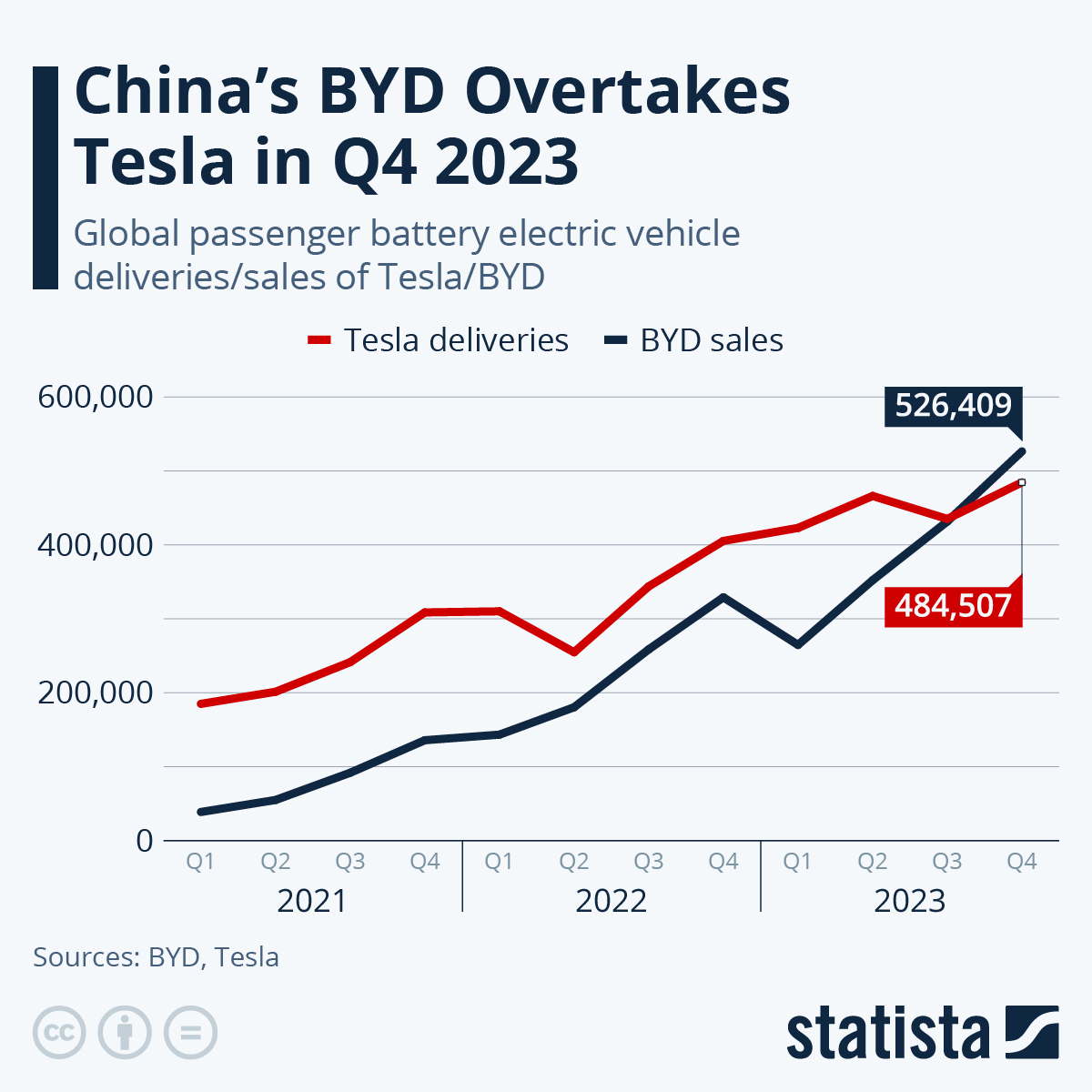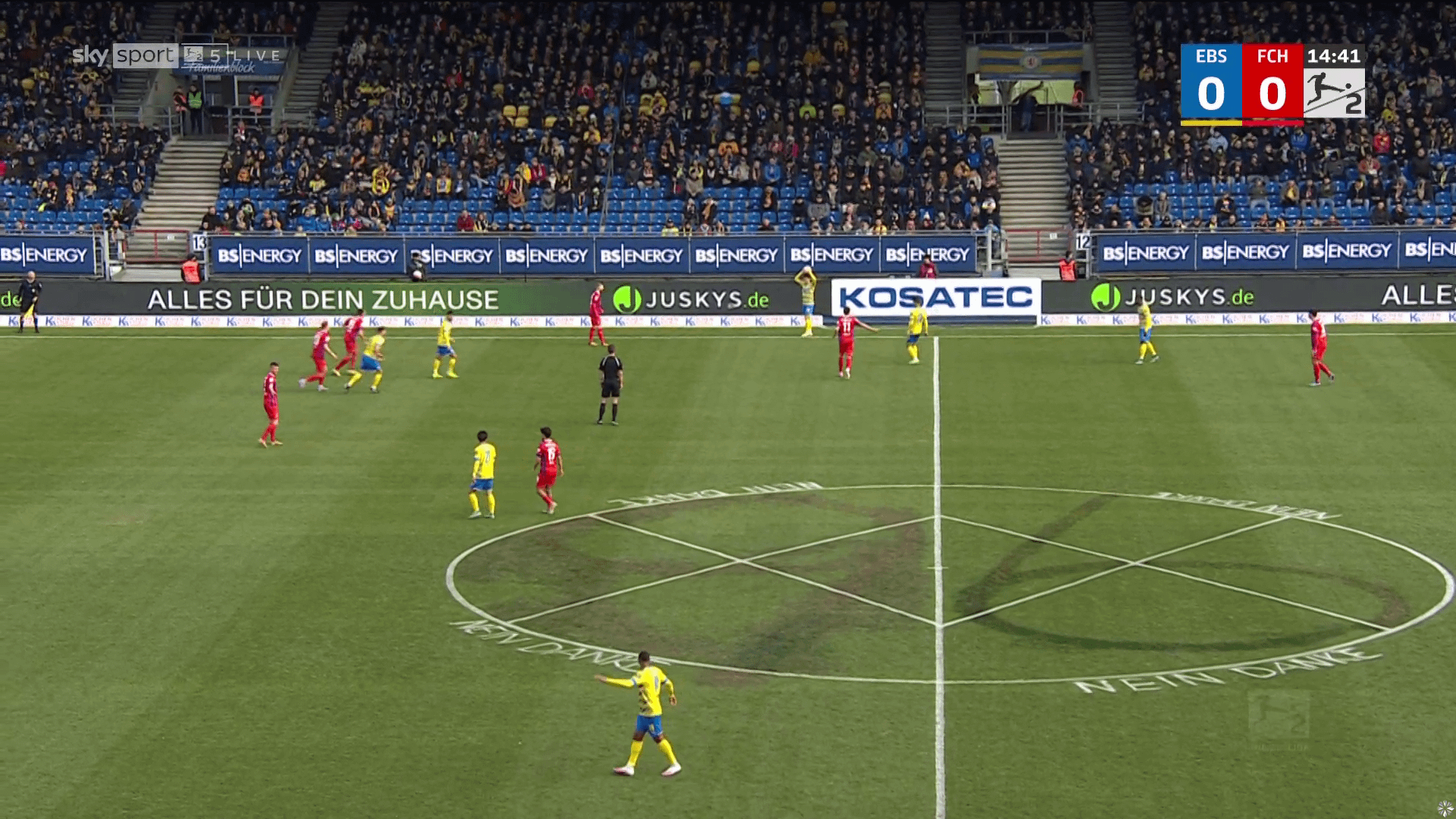The Shifting Sands Of Brazil's Auto Industry: BYD Vs. Ford

Table of Contents
BYD's Aggressive Expansion into Brazil's Automotive Market
BYD's entrance into Brazil's automotive market has been nothing short of aggressive. Their success stems from a multi-pronged strategy focused on competitive pricing, a diverse range of models, and a shrewd understanding of the Brazilian consumer.
BYD's EV Strategy in Brazil
BYD's EV strategy in Brazil hinges on several key pillars:
-
Competitive Pricing: BYD offers EVs at price points attractive to a broader segment of the Brazilian market, undercutting many competitors.
-
Model Range Diversity: They offer a variety of EVs to cater to different consumer needs and preferences, including compact cars and SUVs. Specific models like the BYD Tang and BYD Han are proving popular.
-
Targeted Marketing: BYD's marketing campaigns effectively communicate the value proposition of their EVs, highlighting cost savings and environmental benefits.
-
Charging Infrastructure Partnerships: Collaborations with charging infrastructure providers ensure convenient access for BYD EV owners, addressing a common consumer concern.
-
Leveraging Government Incentives: BYD has successfully capitalized on government incentives aimed at boosting EV adoption in Brazil.
-
Localization Strategy: While details are still emerging, BYD’s potential plans for local manufacturing will significantly impact their long-term competitiveness and the Brazilian economy.
BYD's sales figures, while not yet publicly dominating the market, show impressive growth, signifying strong consumer reception and a successful market entry. This success can be attributed to their comprehensive strategy, addressing price sensitivity, charging anxieties, and tapping into growing environmental consciousness among Brazilian consumers.
BYD's Supply Chain and Manufacturing in Brazil
BYD's future success in Brazil will heavily depend on its supply chain and manufacturing strategy. Establishing a robust local production base offers several advantages:
- Reduced import costs: Local manufacturing can significantly lower the cost of vehicles, enhancing competitiveness.
- Increased job creation: A local manufacturing facility generates employment opportunities across various sectors of the Brazilian economy.
- Faster response to market demands: Local production facilitates quicker adaptations to changes in consumer preferences and market trends.
However, setting up a supply chain in Brazil presents challenges:
- Infrastructure limitations: Brazil's infrastructure in certain regions can pose logistical hurdles for efficient production and distribution.
- Regulatory complexities: Navigating bureaucratic processes and adhering to various regulations can be time-consuming.
- Supplier network development: Building a reliable network of local suppliers requires significant investment and time.
BYD's partnerships with Brazilian companies, if any materialize, will play a vital role in overcoming these hurdles and establishing a strong foothold in the Brazilian market.
Ford's Response to Increased Competition in Brazil
Ford, a long-standing player in Brazil's automotive industry, is facing increased pressure from newcomers like BYD. Maintaining its market share requires a strategic response to this intensified competition.
Ford's Current Market Position and Strategies
Ford's current market share in Brazil is [Insert Data if Available], reflecting the challenges it faces in a rapidly changing market. Their strategies to maintain competitiveness include:
- Diversified Product Portfolio: Ford offers a diverse range of vehicles, balancing traditional internal combustion engine (ICE) vehicles with a growing range of EVs.
- Targeted Pricing Strategies: Adjusting pricing models to compete effectively in different market segments is crucial for Ford's competitiveness.
- Targeted Marketing and Brand Building: Reinforcing brand loyalty and highlighting the strengths of their vehicles are key marketing objectives for Ford.
- Investments and Restructuring: Ford has made (or may be planning) investments and restructuring efforts to streamline operations and adapt to the changing market dynamics.
Analyzing Ford's strengths and weaknesses requires a detailed look at its sales figures, market share data, and customer feedback to pinpoint areas needing improvement and capitalize on its existing strengths.
Ford's Electrification Plans in Brazil
Ford's electrification plans in Brazil are crucial to its long-term success, and lag behind BYD’s aggressive approach. Their strategy involves:
- Phased introduction of EV models: Ford is expected to introduce new EV models in the Brazilian market gradually, focusing on specific segments.
- Investment in EV technology and infrastructure: Investments in R&D and charging infrastructure are essential to support their EV ambitions.
Comparing Ford’s strategy with BYD’s reveals different approaches to market segmentation, pricing, and technology adoption, highlighting the contrasting strategies needed to succeed in this evolving market. Ford needs to accelerate its electrification strategy to effectively challenge BYD and keep pace with evolving consumer preferences.
The Broader Landscape of Brazil's Automotive Industry
Understanding the broader context of Brazil's automotive industry is crucial to assessing the competitive dynamics between BYD and Ford.
Government Policies and Incentives
Government policies play a significant role in shaping the future of Brazil's automotive industry, particularly in promoting EV adoption.
- Incentives for EV purchases: Tax breaks and subsidies for EV buyers directly impact consumer choice and market demand.
- Infrastructure development: Government investment in charging infrastructure is vital for fostering consumer confidence and encouraging EV adoption.
- Regulations on emissions: Stricter emission regulations incentivize the adoption of EVs and other eco-friendly technologies.
Analyzing these policies and their impact on both BYD and Ford requires an understanding of future policy changes and their potential implications for the industry.
Consumer Preferences and Trends
Understanding consumer preferences is critical for both BYD and Ford. In Brazil, these preferences are complex and dynamic:
- Price sensitivity: Price remains a crucial factor influencing vehicle purchases across most segments.
- Brand loyalty: While evolving, brand loyalty still plays a role, giving established brands like Ford an advantage.
- Environmental concerns: Growing awareness of environmental issues is driving increased interest in EVs.
- Technological features: Modern features and technologies are increasingly sought after by Brazilian consumers.
Market research and consumer surveys provide valuable insights into these evolving trends, allowing both BYD and Ford to tailor their strategies accordingly.
Conclusion
The Brazilian automotive industry is experiencing a period of significant change, with BYD's rapid expansion challenging the established presence of players like Ford. BYD's success stems from a strategic combination of competitive pricing, diversified model offerings, and effective marketing, all while leveraging government incentives. Ford, on the other hand, is navigating a complex landscape, needing to accelerate its electrification strategy and adapt to the shifting consumer preferences in the Brazilian market. Government policies and evolving consumer trends play a crucial role in shaping this dynamic environment.
To stay informed about this exciting and rapidly evolving sector, continue following the developments in Brazil's auto industry. Further research into "BYD Brazil market share," "Ford Brazil EV strategy," and the "future of Brazil's auto industry" will provide deeper insights into this fascinating competition.

Featured Posts
-
 Understanding High Stock Market Valuations A Bof A Viewpoint
May 13, 2025
Understanding High Stock Market Valuations A Bof A Viewpoint
May 13, 2025 -
 Stuttgart Open 2024 Ostapenko Defeats Sabalenka In Final
May 13, 2025
Stuttgart Open 2024 Ostapenko Defeats Sabalenka In Final
May 13, 2025 -
 Vyplaty Veteranam Velikoy Otechestvennoy Voyny V Eao
May 13, 2025
Vyplaty Veteranam Velikoy Otechestvennoy Voyny V Eao
May 13, 2025 -
 Von Hannover 96 Zu Eintracht Braunschweig Der Wechsel Von Jannes Horn
May 13, 2025
Von Hannover 96 Zu Eintracht Braunschweig Der Wechsel Von Jannes Horn
May 13, 2025 -
 Okc Thunder Draft Slot Still Undecided Following Regular Season
May 13, 2025
Okc Thunder Draft Slot Still Undecided Following Regular Season
May 13, 2025
